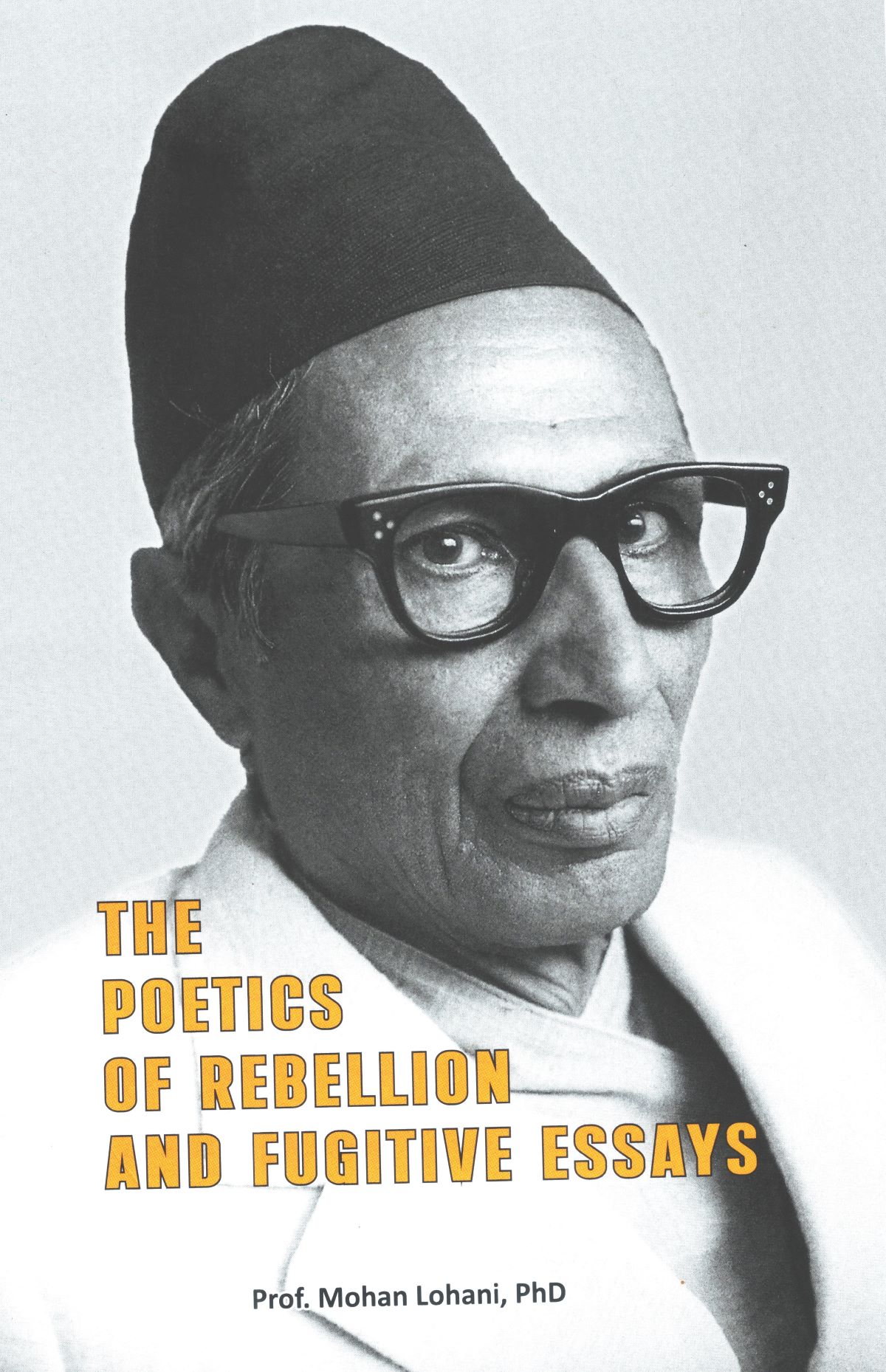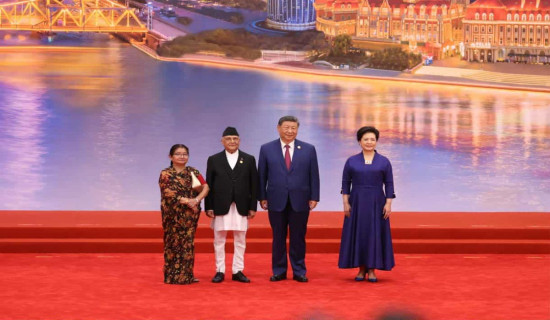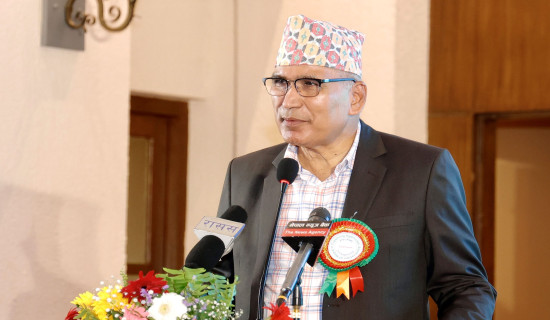- Sunday, 31 August 2025
Book Review
Yugkavi Siddhicharan through the Eyes of a Scholar

The Poetic of Rebellion and Fugitive Essay, a compelling scholarly work by Prof. Mohan P. Lohani, dig deeply into the poetic contributions and social relevance of Yugkavi Siddhicharan Shrestha. This book is a well-curated collection of critical essays that present Siddhicharan not just as a literary figure but as a voice of resistance, a poet of revolution, and a messenger of change during Nepal’s repressive Rana regime.
Prof. Lohani structures the book with insightful subtitles, each exploring different aspects of Siddhicharan’s literary world. The opening chapter, The Great Poet, outlines Siddhicharan’s biography and foregrounds his commitment to national unity, equality, and democratic values. Through this lens, Prof. Lohani portrays the poet as a transformative figure whose life and works were dedicated to challenging injustice and advocating for the rights of all citizens.
A central focus of the book is Siddhicharan’s epic poem Mangalman, where the protagonist, a courageous social reformer, is vilified for defying caste discrimination by educating and eating with the so-called untouchables. His defiance leads to his tragic downfall, yet his character symbolizes the resilient fight against social injustice. Prof. Lohani presents Mangalman as a quintessential freedom fighter — embodying the revolutionary zeal of Siddhicharan’s vision.
Another powerful poem examined is Tears, which reflects the anguish of the people under authoritarian rule. Here, Prof. Lohani expertly decodes the symbolism of the poem, emphasizing Siddhicharan’s advocacy for human dignity and democratic freedom. Through this poem, the poet’s unwavering commitment to individual liberty shines through.
Patriotism is another recurrent theme in Siddhicharan’s poetry, as seen in the poem Nepal, which Prof. Lohani quotes to highlight the poet’s deep love for his country:
"The more I see the country
The more I long to see it
Ever strong is my desire
To love it and sing its glory."
These lines, as Prof. Lohani argues, reflect Siddhicharan’s nationalistic spirit, emphasizing sovereignty, independence, and cultural pride.
The feminist dimension of Siddhicharan’s poetry is thoughtfully explored through Jyanmara Shaila, a poem that exposes the plight of women in a patriarchal society. Prof. Lohani interprets this as a social tragedy that critiques systemic gender injustice, portraying Siddhicharan as a poet ahead of his time with a keen awareness of gender sensitivity.
In the concluding chapters, the book turns toward the folk essence of Siddhicharan’s poem Yuddha ra Shanti (War and Peace), where the poet advocates for harmony through a return to nature and rural simplicity. The emphasis on the symbiotic relationship between humans and nature adds a philosophical and ecological layer to his poetry.

While the book maintains clarity in its language and analysis, occasional repetition—particularly the recurring references to Mangalman even within unrelated discussions—could lead to some confusion for readers. However, this minor flaw does not overshadow the overall value of the work.
Prof. Mohan P. Lohani’s The Poetic of Rebellion and Fugitive Essay is a seminal contribution to Nepali literary criticism. It brings to light the multifaceted genius of Yugkavi Siddhicharan Shrestha, a poet, reformer, and visionary. This book is an essential read for researchers, students, and lovers of Nepali literature who seek to understand the power of poetry as a force for social transformation. Through evidence-based analysis and heartfelt engagement, Prof. Lohani successfully honors Siddhicharan’s poetic legacy as the voice of the oppressed and the soul of a nation in search of justice, peace, and progress.







-square-thumb.jpg)


-original-thumb.jpg)



